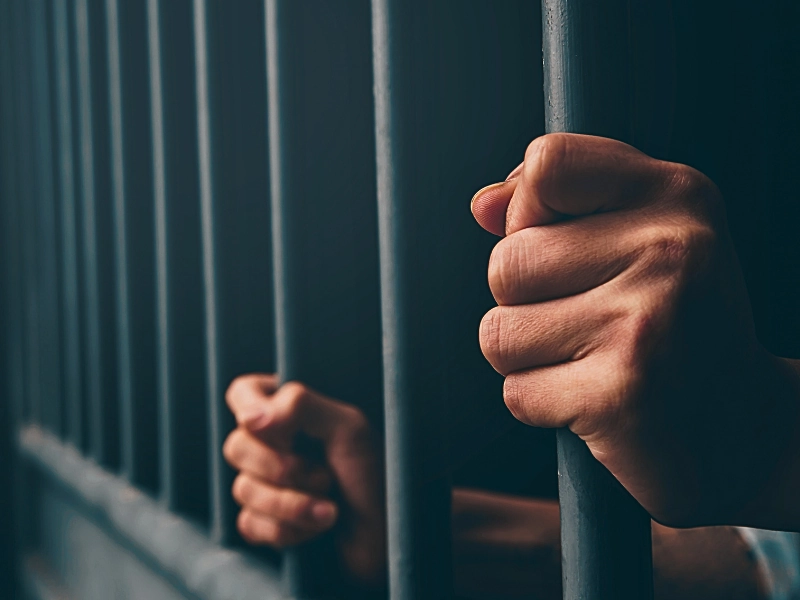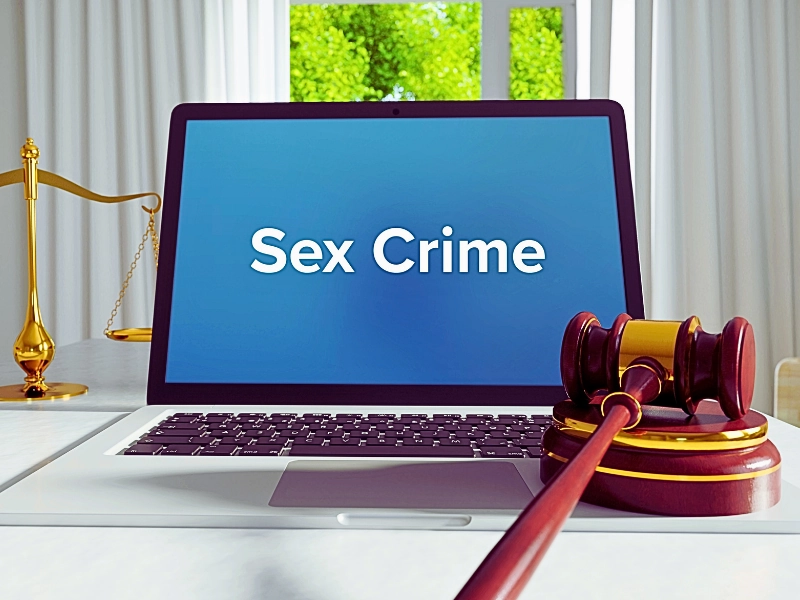Students with juvenile convictions in their records and intending to apply for college may wonder, “Do juvenile crimes impact college admissions?” A juvenile crime in Minnesota can lower the odds of your child’s college application getting approved. A conviction of a serious juvenile crime may result in an automatic rejection of college applications. A minor with a criminal record may be disqualified from accessing student loans or grants.

If your child has been arrested or charged with a juvenile crime, you need a juvenile defense attorney. The attorney can discuss the impact of a conviction on your child’s chances of joining college. The attorney is familiar with the Minnesota juvenile criminal justice system and can identify the best legal option for your situation.
Contact Keller Criminal Defense Attorneys at (942) 913-1421 if your child has been arrested or charged with a juvenile crime. Our defense attorneys will help protect your child’s rights.
Table of Contents
Statistics on Juvenile Crimes in Minnesota
A Minnesota crime report shows that juvenile arrests accounted for 15% of the 150,036 arrests recorded in 2017. Juvenile arrests for serious crimes like aggravated assault, rape, burglary, and robbery contributed to 4% of all arrests in the same year. Juveniles made up 10% of all arrests for less serious crimes like disorderly conduct, driving while impaired, drug abuse, and simple assault.
Status offenses accounted for just 1% of all arrests. Status offenses constitute actions or behaviors that are illegal to minors but legal to adults. They include alcohol or drug use and loitering.
Up to 21,864 juveniles were arrested in Minnesota for serious crimes, less serious crimes, and status offenses in 2017. Arrests for less serious offenses stood at 66%, accounting for most of the total juvenile arrests. Serious crimes and status offenses contributed to 27% and 7% of all juvenile arrests, respectively.
Boys aged between 10 and 17 years made up 68% of all minors arrested in 2017. Girls, on the other hand, represented 32% of all teens arrested. Boys arrested for serious and less serious offenses were 66% and 69%, respectively. Girls arrested for serious and less serious criminal offenses were 34% and 31%, respectively.
The Impact of Juvenile Crimes on College Admissions
A juvenile record can hurt different areas of your life, including getting a college education and turning career aspirations into reality.
A Juvenile Crime Can Lower the Odds of a College Application Approval
Most college admission forms include a question about the criminal history of an applicant. Checking this box is compulsory if you have an arrest or conviction on your record. The school will perform an official background check for all the students with checked boxes. The findings will inform the school’s admission decisions.
A criminal record can lower your chances of securing admission to your preferred college. The reason is that the college will have a huge pool of applicants with clean records.
More Serious Crimes and Convictions Can Result in Automatic Rejection
Can you go to college with a misdemeanor? Some public universities and colleges may approve your application if your arrest or conviction was for a less serious offense.
Convictions involving more serious juvenile crimes like murder, rape, and aggravated assault may lead to automatic disqualification. Private colleges and top public universities may still reject your application even if you have exemplary grades throughout high school.
Hurt Your Chances of Qualifying for Student Loans
Many families cannot afford to fund college education fully from their incomes. They hugely depend on financial aid in the form of student loans, studentships, and grants. Sadly, a criminal history could hurt a young person’s eligibility for financial aid.
Federal student loans and scholarships are the main sources of financial aid for many students. Eligibility requirements for these federal loans and grants are stringent and often lock out some applicants with a criminal record.
More serious offenses often lead to automatic disqualification from federal financial aid.
Trouble Accessing Housing or Accommodation Facilities on Campus
Most colleges do not have sufficient housing to accommodate all their students. One of the requirements for residing on campus is to have a clean criminal history. As such, even if a college approves your application despite your criminal history, you may still not benefit from on-campus housing.
Strategies for Overcoming Juvenile Criminal Records in College Admissions
Juveniles can take proactive measures to overcome the impact of their criminal record.
Be Honest and Transparent
Respond to questions regarding your juvenile criminal record honestly and transparently. Provide information regarding prior arrests, charges leveled, and disposition, especially if all these details are required.
As stated earlier, institutions that ask these questions usually do background checks. So, any inconsistency between your answers and the background check results could impact your likelihood of getting accepted.
Petition the Juvenile Court for Expungement
Requesting the juvenile court to expunge your record is another great way to start your adult life on a clean slate. Minnesota law permits expungement or sealing of juvenile records provided requirements are met. You must have, for instance, served your sentence in full to qualify for expungement. You must also not have recent charges or convictions.
The expungement process starts with petitioning a juvenile court where the crime happened. Your petition must comprise all information related to the offense, an overview of what it was about, and where and when it occurred.
It must also outline reasons you are entitled to the expungement. The court will examine the petition and may schedule a hearing to determine whether to allow or deny the expungement.
Expungement in Minnesota falls into two main categories: partial and full expungement. Partial expungement erases your record from the public, but remains accessible to the courts and law enforcement authorities. Full expungement occurs when the judge orders the sealing of court records and other records in the custody of government agencies.
Focus on Colleges That Don’t Require Criminal History Disclosure
Students with felony convictions in their records may wonder, “Can you get into college with a felony?” You can still secure college admission even with a felony, especially if you target institutions that do not require applicants to disclose their criminal history.
The University of Minnesota (U of M), for instance, stopped asking applicants about their felony convictions more than five years ago. The move sought to encourage prospective students previously charged or convicted of felony-level offenses to enroll and acquire higher education.
Seek Scholarships Meant for Former Offenders and Federal Pell Grants
Various government and non-government organizations offer scholarships and grants to help formerly incarcerated students pursue higher education. The Minnesota Association of County Probation Officers (MACPO), for example, has an open scholarship for students pursuing or intending to pursue a corrections-related degree.
Formerly incarcerated students can also apply for Pell Grants. Unlike a student loan, you do not have to repay a Pell Grant.
Tackle the Question of Your Criminal Past in Your College Essay or Interview
College essays often require you to discuss experiences that have shaped your life. Discussing your arrest or conviction in detail and the lessons you picked from it can help demonstrate maturity.
Your essay should highlight the steps you have taken to ensure you do not return to your criminal past. You could mention that you have completed an alcohol treatment program. Ensure you have a certification or a letter from your treatment provider to corroborate your claims if the college asks for it.
You could also mention that you want to join college to improve your life. If you are invited for an interview with the college administrators, be prepared to answer questions regarding your criminal history.
Hire a Juvenile Criminal Defense Lawyer
Minors under criminal investigation or facing criminal charges in Minnesota can benefit from the early involvement of a juvenile criminal defense lawyer. A knowledgeable lawyer can protect your teen’s rights and maximize the chances of a desirable outcome. The lawyer will:
Examine the Child’s Arrest Details
The lawyer will commence the juvenile criminal defense process by examining your child’s arrest. The goal is to determine whether the authorities violated your teen’s rights during the arrest process.
Did the officer read the Miranda rights during the arrests? Was the child informed of the right to have a legal counsel or guardian present during interrogation? Did the officer obtain evidence through unlawful search and seizure?
The defense lawyer will analyze the arrest details and other relevant documents to determine if a violation of the juvenile rights while in custody happened. The lawyer will file a motion to dismiss the charges if the lawyer finds proof of legal rights violation.
Maximize the Odds of the Best Possible Result
A criminal defense lawyer with a proven history of winning juvenile criminal cases can provide your child with the legal support necessary to sail through the justice process. The lawyer will analyze the evidence related to the case to determine the best strategy to secure the most favorable outcome.
The lawyer will craft a defense strategy that convinces the court to view your child in good light. This might involve compiling information regarding your teen’s life in school and any achievements realized.
The lawyer will review educational records, certificates, and awards. He or she may also interview the minor’s teachers, fellow students, and neighbors to obtain information that puts your child in the best light.
With an evidence-supported defense strategy, the lawyer will aggressively fight to avoid a conviction. If a conviction is inevitable based on the circumstance of the crime and available evidence, your lawyer will push for a reduced sentence. The lawyer will, for instance, advocate for probation, community service, or house arrest rather than incarceration or paying a huge fine.
Prevent Your Child From Getting Tried as an Adult
In Minnesota, the juvenile court may permit a minor above 14 years to get tried in an adult court. This is especially true if the minor is charged with an egregious crime or has a prior criminal conviction.
The input of a criminal defense lawyer who knows the court process for juveniles can make a significant difference when your child is likely to be tried as an adult. Your lawyer will vigorously fight unfair punishment that may be imposed on your child.
Positively Communicate With You and Your Child
Your child needs someone who will show empathy, communicate positively, and take appropriate steps to protect his or her future. That is what a lawyer who handles juvenile criminal cases will do.
The lawyer will discuss the possible outcome of the case based on available evidence and precedents. This allows you and your child to have a more practical expectation and plan accordingly.
The lawyer will keep you informed on the progress of your child’s case. He or she will try to negotiate an acceptable plea deal with the prosecutor, either informally or formally. The lawyer will handle the entire negotiation process, saving you and your child from the hassles of staying in touch with anyone else besides your lawyer.
Peace of Mind
Juvenile criminal justice can take a toll on the mental well-being of both you and your child. Hiring a lawyer with a history of winning juvenile criminal cases related to your child can offer you peace of mind. Rather than worrying about how to defend your child, you can dedicate yourself to giving your lawyer all the cooperation and assistance he or she needs to mount an effective defense.One mistake should not prevent your child from joining his or her dream college and realizing his or her career aspirations. Our dedicated juvenile criminal defense team at Keller Criminal Defense Attorneys is on standby to give you all the required legal support to turn your situation around. Contact us now for personalized and dedicated legal representation.





